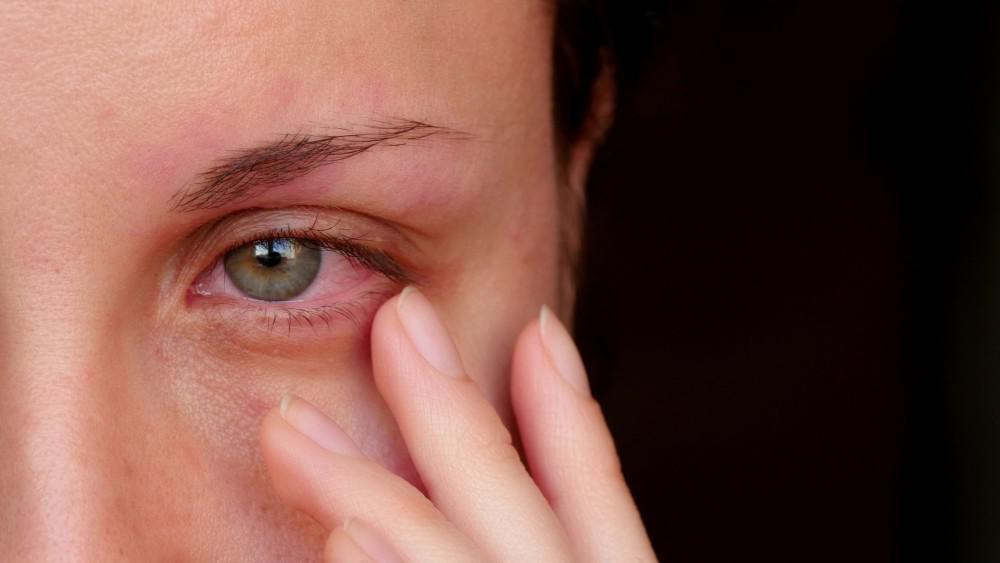After age 50, both women and men are at risk for an irritating condition called dry eyes. However, women are much more likely to develop dry eyes than men are. The hormonal down-shifting that occurs with menopause has an unlikely side effect: It affects the surface of your eye and its tears.
At Eye Associates of Monmouth in Colts Neck, New Jersey, our caring ophthalmologist, John Ghobrial, MD, knows that dry eyes can have a multitude of causes, including irritation and a dry climate. However, if you’re a woman who’s going through perimenopause or is postmenopausal, your hormones may be at the root of your dry eyes.
How can menopause affect your tears? Here’s a brief explanation.
Hormones regulate (almost) everything
One of the reasons that older adults experience so many uncomfortable signs of aging is due to a downward shift in the production of key hormones. Hormones are chemicals that regulate almost every organ and system in your body.
Menopause can bring on a great variety of symptoms because the drop in hormones is so dramatic and so fast. For instance, hormones control your metabolism and your appetite, so you may find that you gain fat and lose muscle after menopause.
An unexpected area where hormones exert their influence is on the surface of your eye. Sex hormones such as estrogens and androgens act to stabilize your eye and its tear production.
Estrogen and testosterone influence tears
Researchers used to believe that the drop in estrogen was the main reason why women in perimenopause, menopause, and postmenopause were susceptible to dry eyes. However, recently the role of androgens such as testosterone has also become clearer.
Women have less testosterone than men do, even in their youth. As women age, testosterone drops even further. Producing tears is a multi-step process that can go awry in many ways. Hormones influence:
- Tear production
- Tear evaporation
- Tear drainage
- The health of corneal epithelial cells
- The health of nerves behind the cornea
- Immune system of the eyes
Another hormone, thyroid hormone, also plays a role in healthy tear production. And as you age, you also produce less thyroid hormone.
What a lack of tears does to your eyes
Normally, a tear layer covers the surface of your eyes at all times, keeping them safe and protected. Your tear layer measures about 3 micrometers thick and 3 microliters in volume. When you have dry eyes, any component of your tear film might be affected — the aqueous layer (water), mucins (proteins), and lipids (fats).
When the tears produced don’t have the right balance of ingredients, your eyes feel itchy, dry, and swollen. If you don’t have enough hormones to produce a perfectly balanced and thick tear layer, your eyes feel or look:
- Gritty
- Red
- Swollen
- Sensitive to light
- Painful
- Tired
- Burning
- Itchy
- Dry
You may also experience visual disturbances, including blurry vision.
Get treatment for dry eyes
Chronically dry eyes endanger your vision and ocular health. Without treatment, dry eyes can lead to:
- Eye infections
- Scratched cornea
- Ulcers on your eyelids
- Scarring on the eyes
- Difficulty seeing
If your dry eye is mild, Dr. Ghobrial may recommend over-the-counter, preservative-free lubricating eye drops or ointments. He may also prescribe:
- Antibiotics to reduce eyelid inflammation
- Corticosteroids to reduce corneal inflammation
- Eye inserts that release lubrication
- Medications that stimulate tear production
- Special contact lenses to trap moisture
You may also benefit from minor surgical procedures to unclog your tear ducts or oil glands.
Don’t use eye drops without understanding why your eyes are dry and how to solve the problem safely and for the long term. Schedule an appointment at Eye Associates of Monmouth for dry eye diagnosis and treatment. You can call our friendly staff or use our online appointment request tool today.


